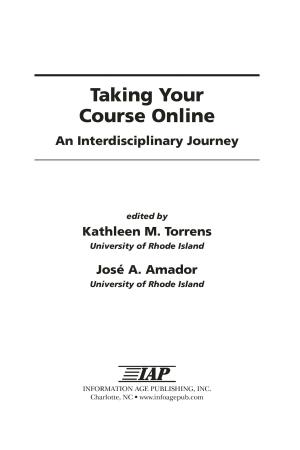Contemporary Uses of Technology in K12 Physical Education
Policy, Practice, and Advocacy
Nonfiction, Reference & Language, Education & Teaching, Teaching, Physical Education, Health & Well Being, Fitness, Exercise, Health| Author: | ISBN: | 9781617359613 | |
| Publisher: | Information Age Publishing | Publication: | January 1, 2013 |
| Imprint: | Information Age Publishing | Language: | English |
| Author: | |
| ISBN: | 9781617359613 |
| Publisher: | Information Age Publishing |
| Publication: | January 1, 2013 |
| Imprint: | Information Age Publishing |
| Language: | English |
What do teachers, principals, school administrators, superintendents, state policy makers, and parents need to know about the growing trend to use technology in physical activity environments? How can technology be used to increase not only fitness levels but academic learning in today’s youth? How can kids benefit from increased use of technology in physical education? These questions and others are answered in this volume of the series Educational Policy in the 21st Century: Opportunities, Challenges, and Solutions. An entire generation is growing up without the benefits of daily physical activity. The daily experiences of our children are centered on the use of technology driven, mostly sedentary, activities. Technology should be considered a viable tool that can increase physical activity levels when implemented effectively. The lack of contemporary programs and strategies that motivate participants to want to participate daily in physical activity has created a culture of inactivity and obesity and is having a profound effect on the physical health and academic learning potential of today’s youth. In this volume the authors suggest current trends and explore the enormous potential of technology in motivating youth to commit to daily physical activity. Authors detail contemporary programs, teaching strategies and contemporary technologies beginning to be used in schools across the country, and suggest policies, directions, and cost considerations for implementing technology based learning in physical activity and physical education settings.
What do teachers, principals, school administrators, superintendents, state policy makers, and parents need to know about the growing trend to use technology in physical activity environments? How can technology be used to increase not only fitness levels but academic learning in today’s youth? How can kids benefit from increased use of technology in physical education? These questions and others are answered in this volume of the series Educational Policy in the 21st Century: Opportunities, Challenges, and Solutions. An entire generation is growing up without the benefits of daily physical activity. The daily experiences of our children are centered on the use of technology driven, mostly sedentary, activities. Technology should be considered a viable tool that can increase physical activity levels when implemented effectively. The lack of contemporary programs and strategies that motivate participants to want to participate daily in physical activity has created a culture of inactivity and obesity and is having a profound effect on the physical health and academic learning potential of today’s youth. In this volume the authors suggest current trends and explore the enormous potential of technology in motivating youth to commit to daily physical activity. Authors detail contemporary programs, teaching strategies and contemporary technologies beginning to be used in schools across the country, and suggest policies, directions, and cost considerations for implementing technology based learning in physical activity and physical education settings.















